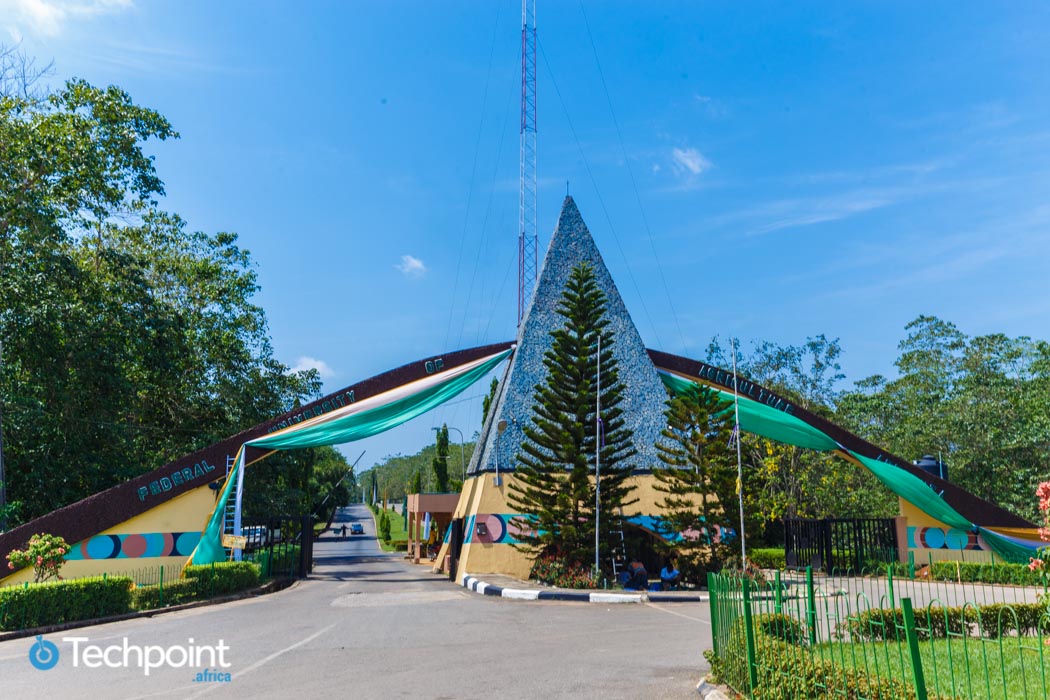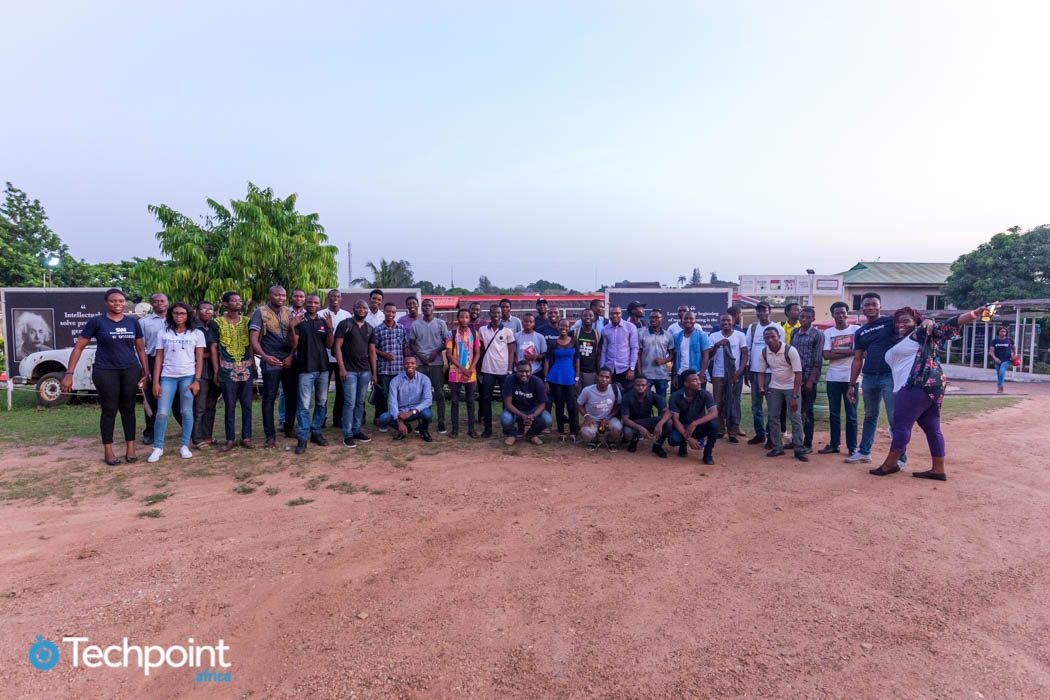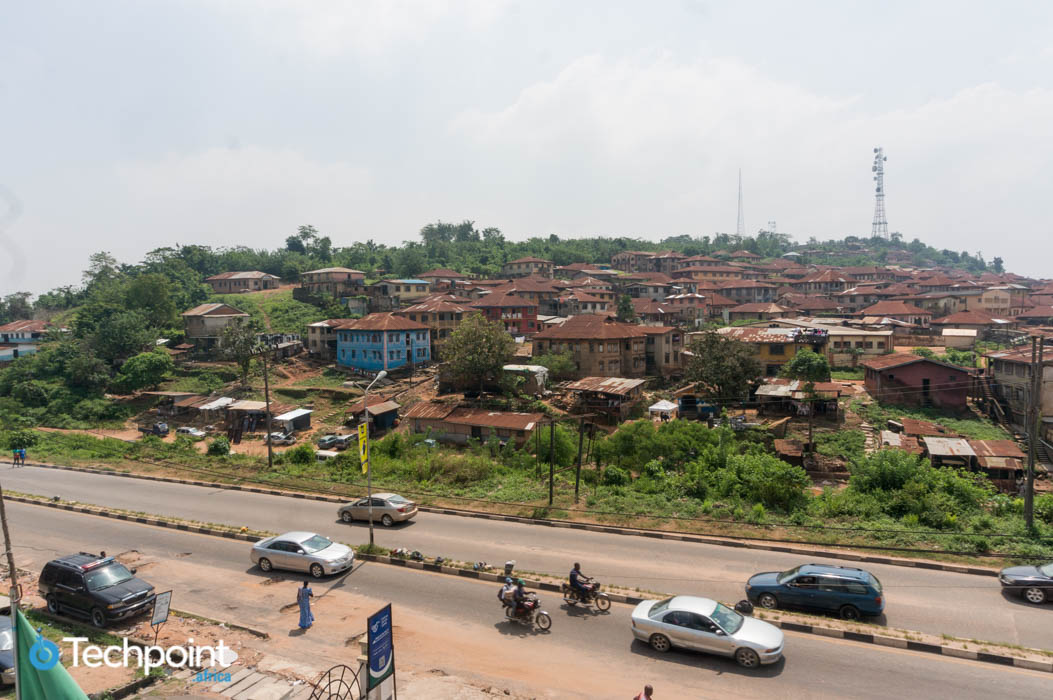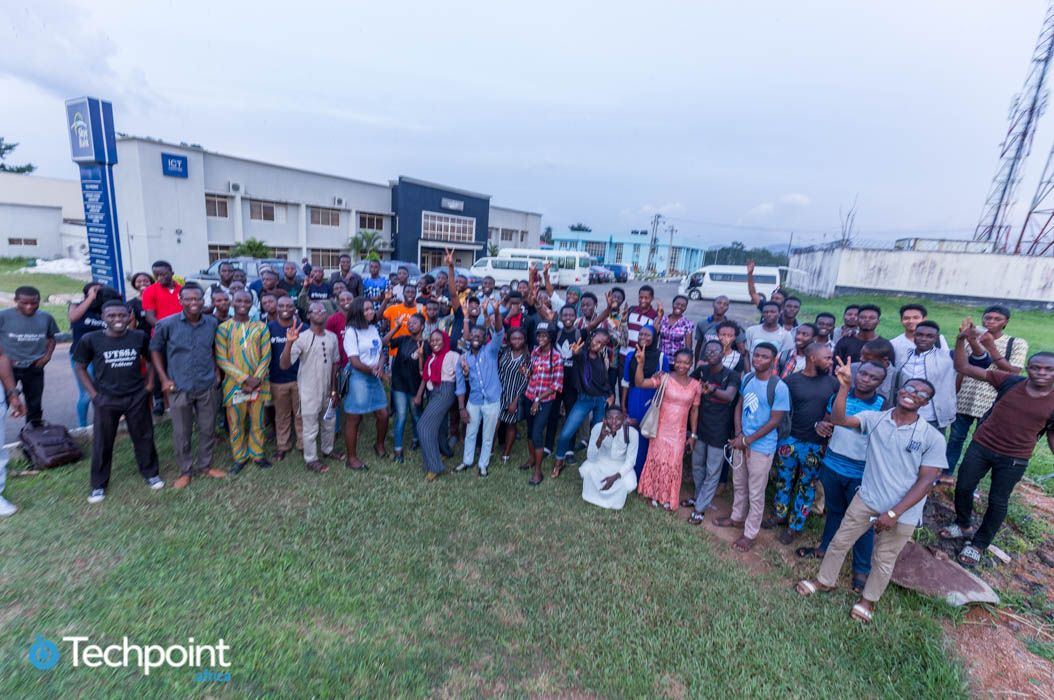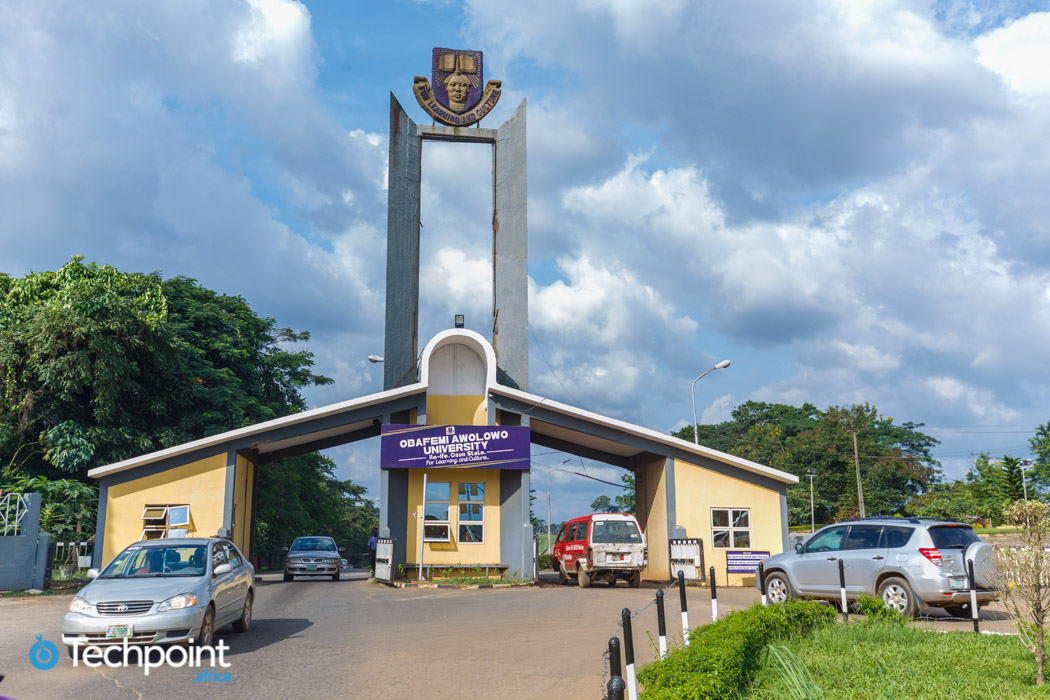Several hubs have come into existence in Nigeria’s tech ecosystem over the past few years. These hubs bridge the gap between the knowledge of technology and its appropriate application. However, only a few technology hubs in Nigeria have the resources to support hardware focused initiatives.
During the Northern Nigeria Innovation tour by Techpoint.ng, we discovered the Technology Development for Poverty Alleviation and Initiative (TD4PAI) hub in Kuje, Abuja. This hub focuses on the development of local technology in the upstream (hardware and firmware) ICT sector. Founded by Dr. Agu Collins in 2014, TD4PAI organises workshops geared towards building made in Nigeria products.
A one hour drive from Wuse II district in Abuja to Kuje town marked the beginning of our journey to TD4PAI.

With the help of Glory, the hub manager, we were able to locate the hub after walking for about 20 minutes from our drop off point.
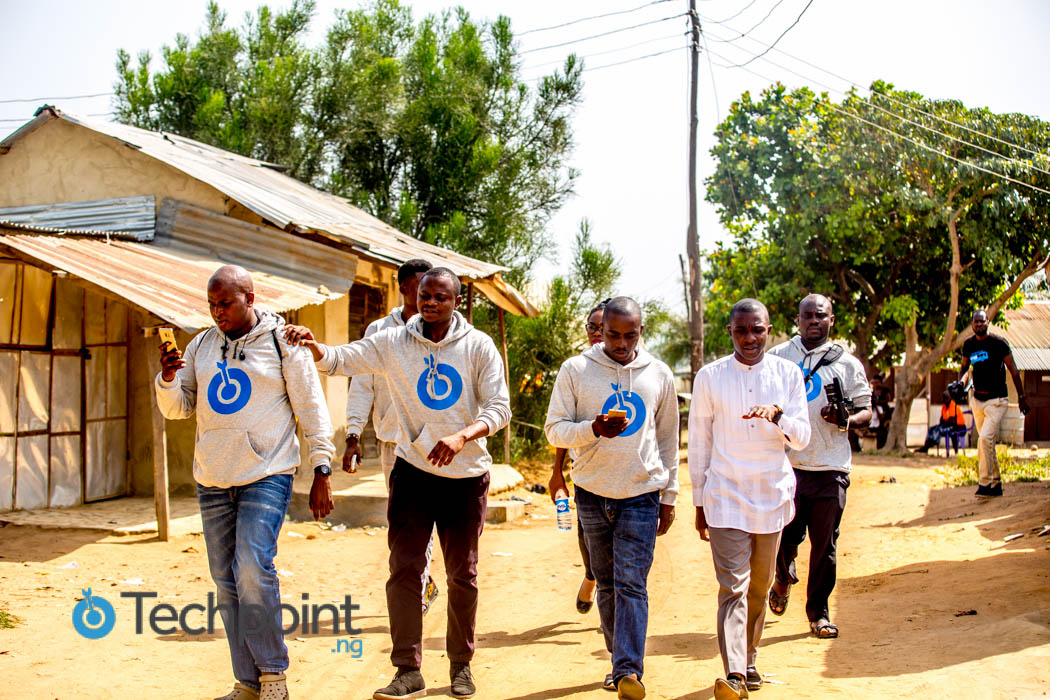
TD4PAI has two sites, which are bounded by fences. The first site houses the secretariat, training rooms, a pharmacy, a salon and a community borehole for attracting residents of Kuje to the hub.
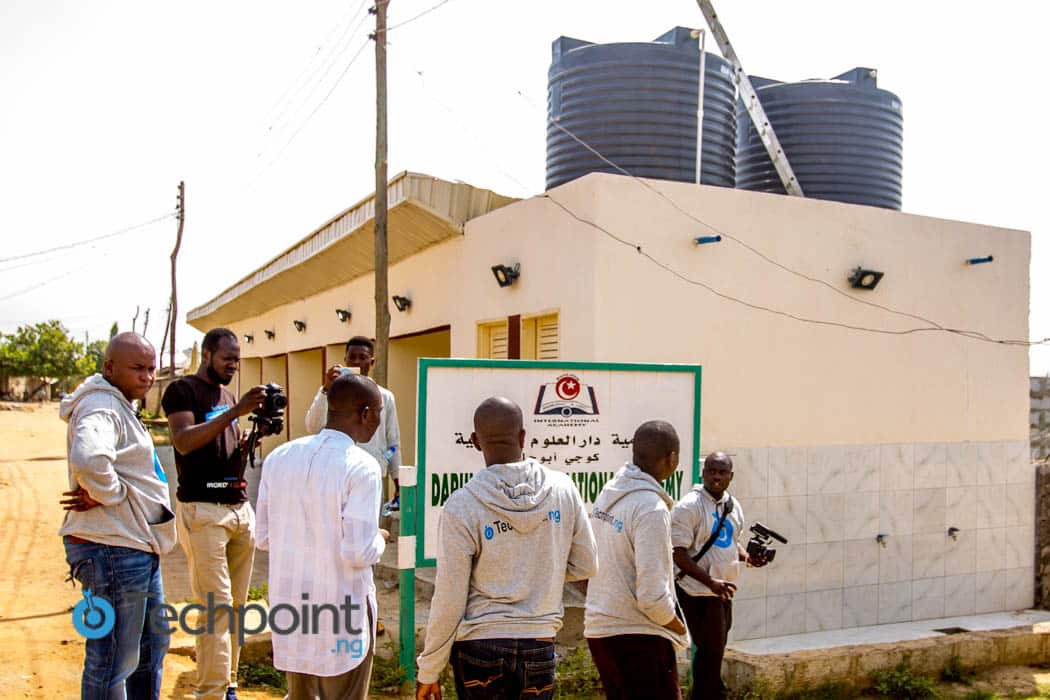
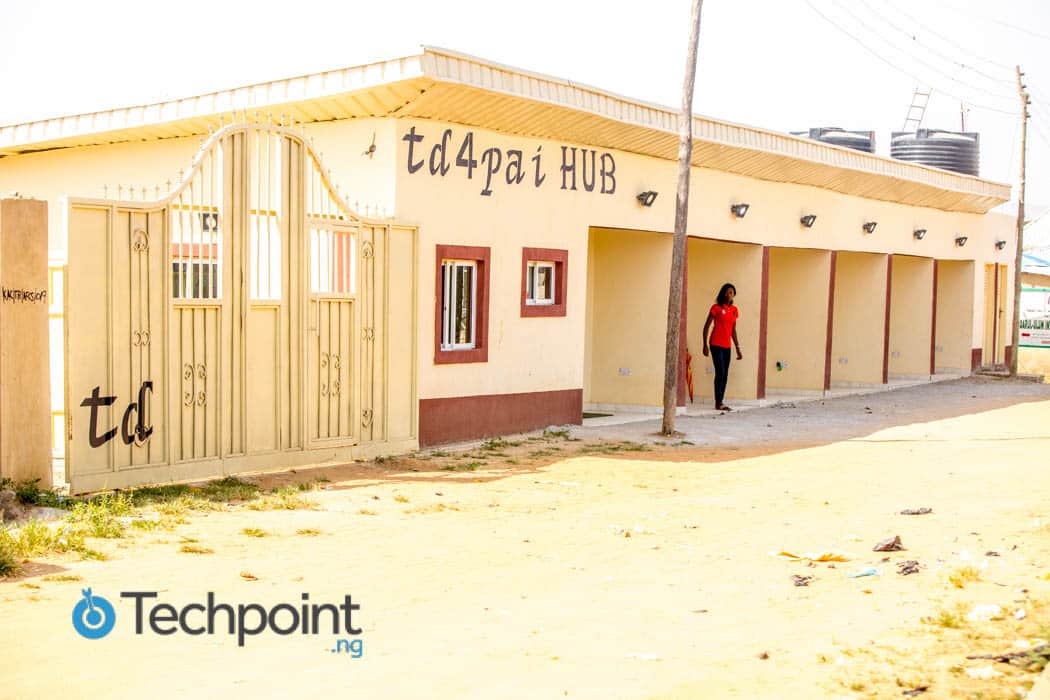
Through the main gates and still within the first cite is an ongoing construction of a bigger training hall and an automated fish pond.
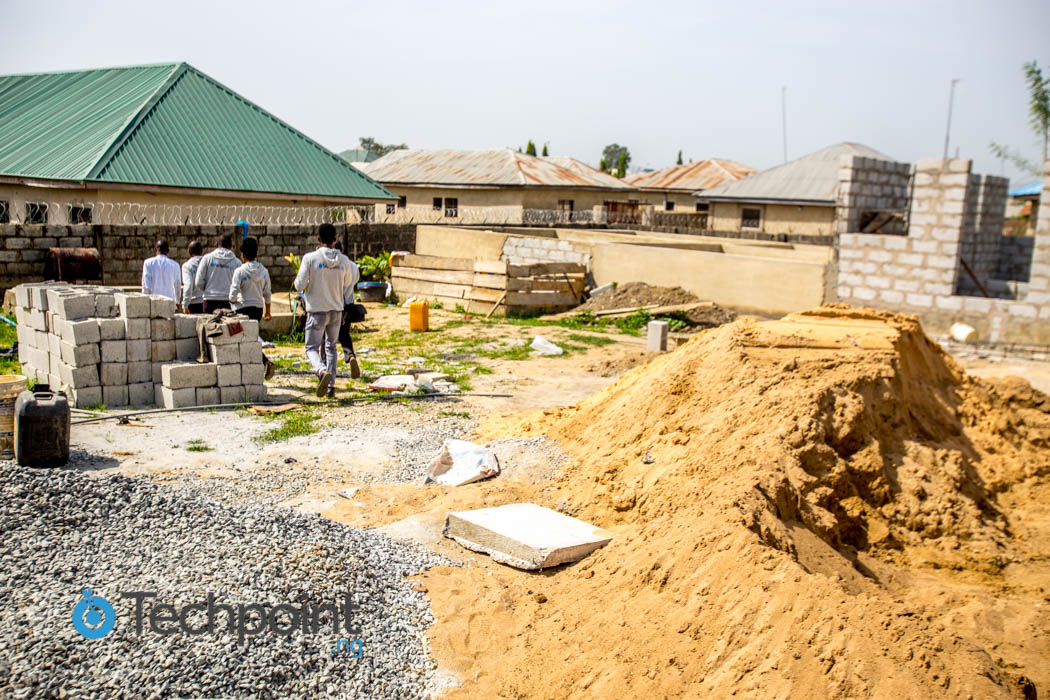
The Automated Fish Pond is a project by one of the students in the hub. The water pumps have controllers that regulate the alkaline and acidic level of the water going into the pond.
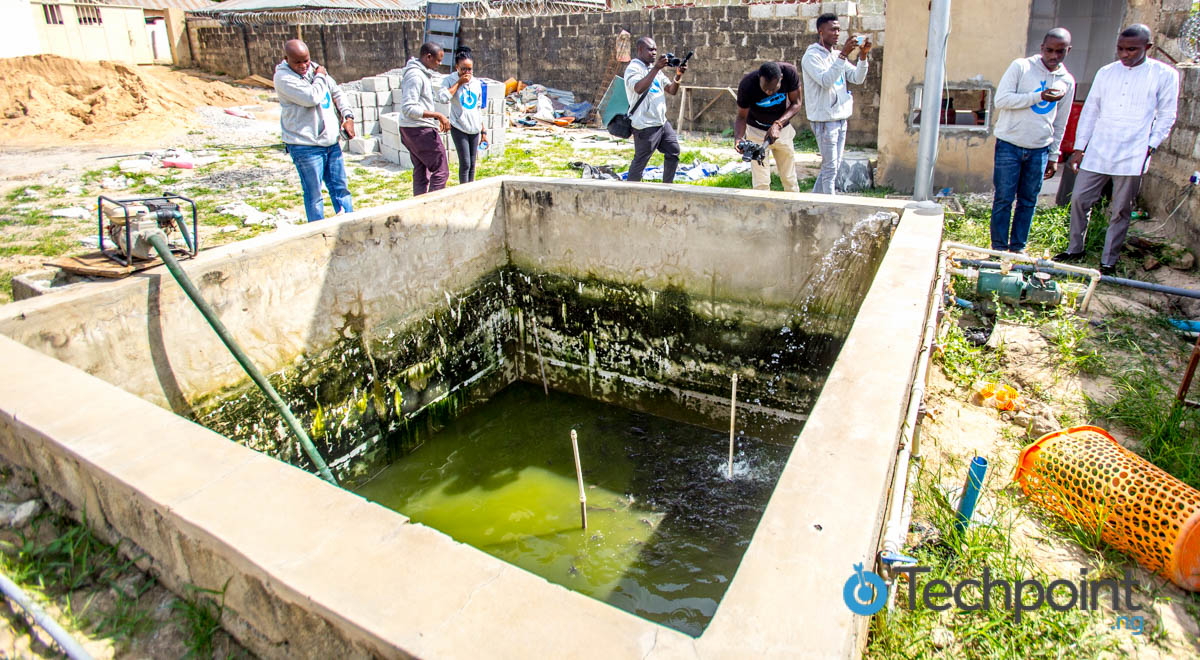

Due to unstable power supply from the Power Holding Company of Nigeria, the hub has two extra sources of power supply. A gas powered generator and solar panels.

A lot of the individuals resident in Kuje are not computer literate. This initiated the computer appreciation programs offered at TD4PAI. The individuals that successfully complete the computer appreciation program, proceed to learn how to write codes using programming languages.
Individuals interested in embedded systems and core hardware development are exposed to basic electronics in the incubation program.
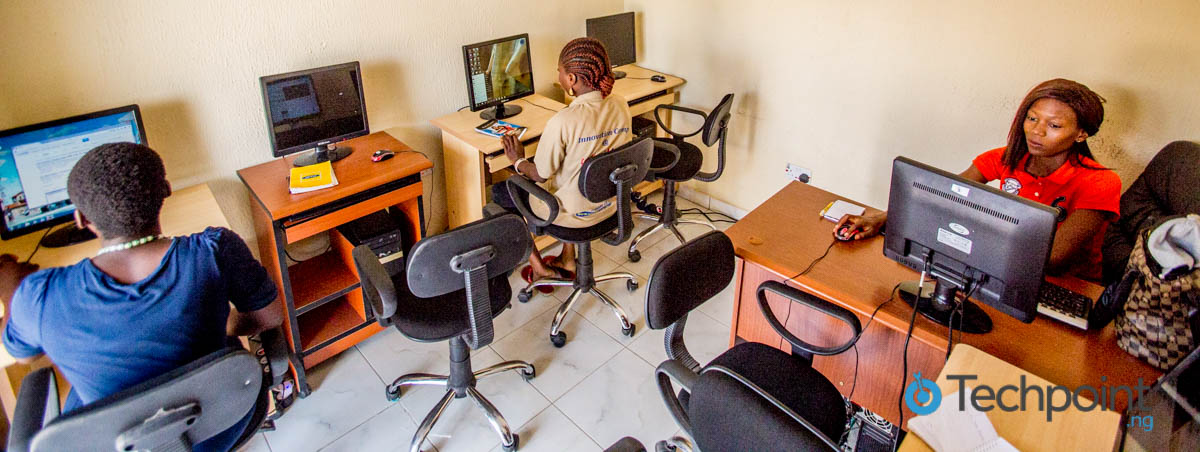
And to capture young minds, the hub exposes kids in schools they visit to the raspberry pie – a tiny and affordable computer that can be used to learn programming through fun, practical projects – and solar powered toy cars.
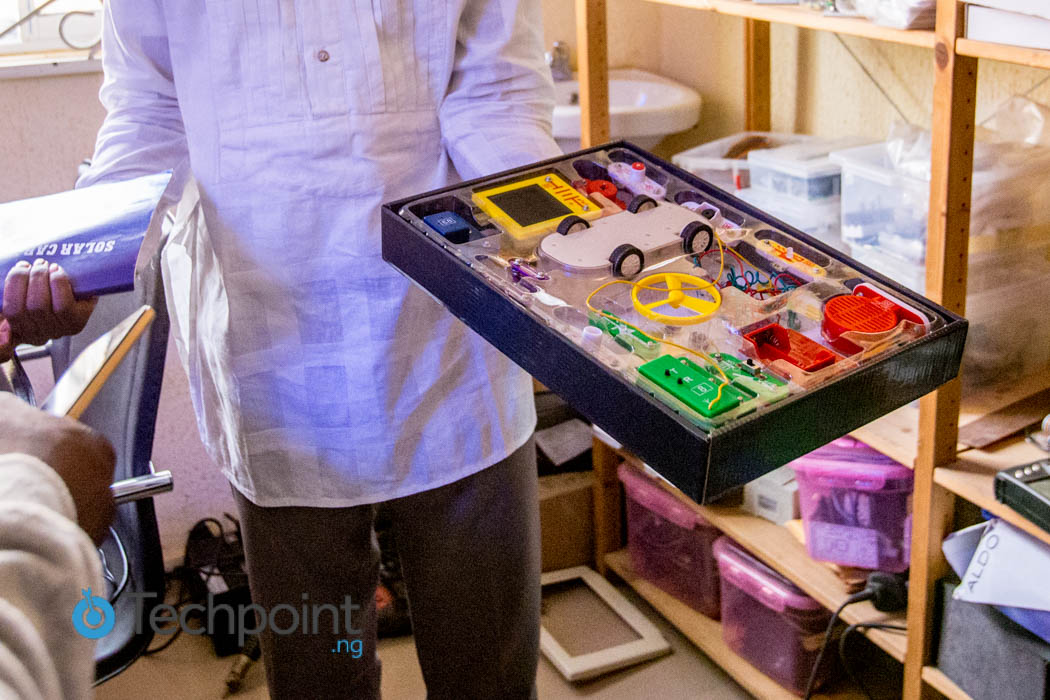
In a nutshell, the hub provides training, incubation and acceleration to youths within and outside of Kuje town.
We proceed to the second site; The Incubator.

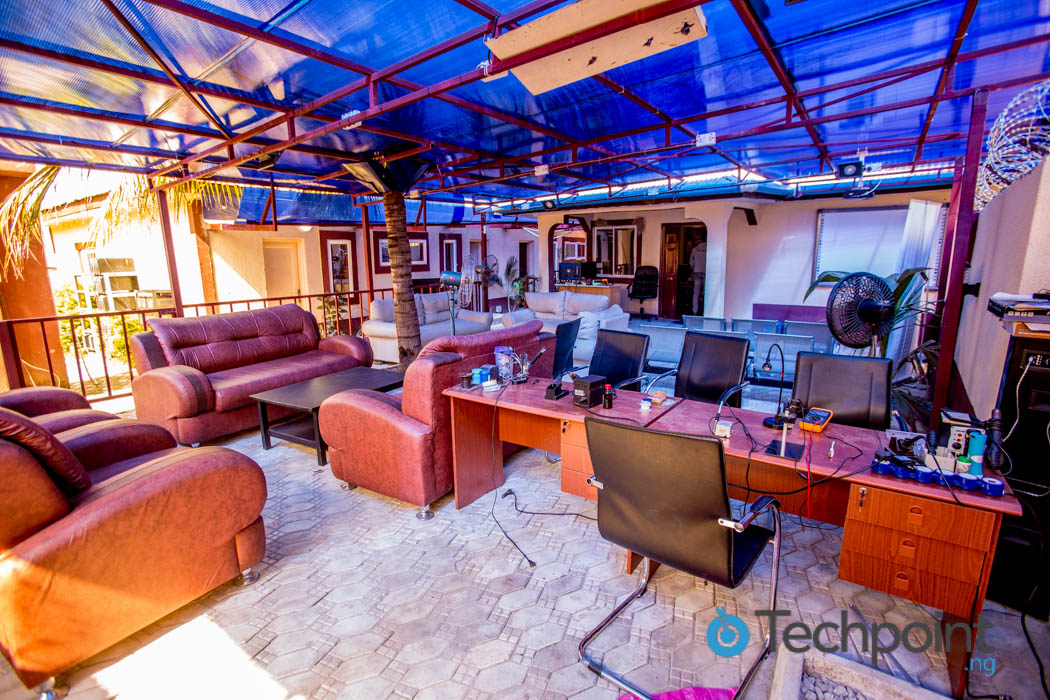
Walking through the doors that lead to the incubator, we are greeted by the students.
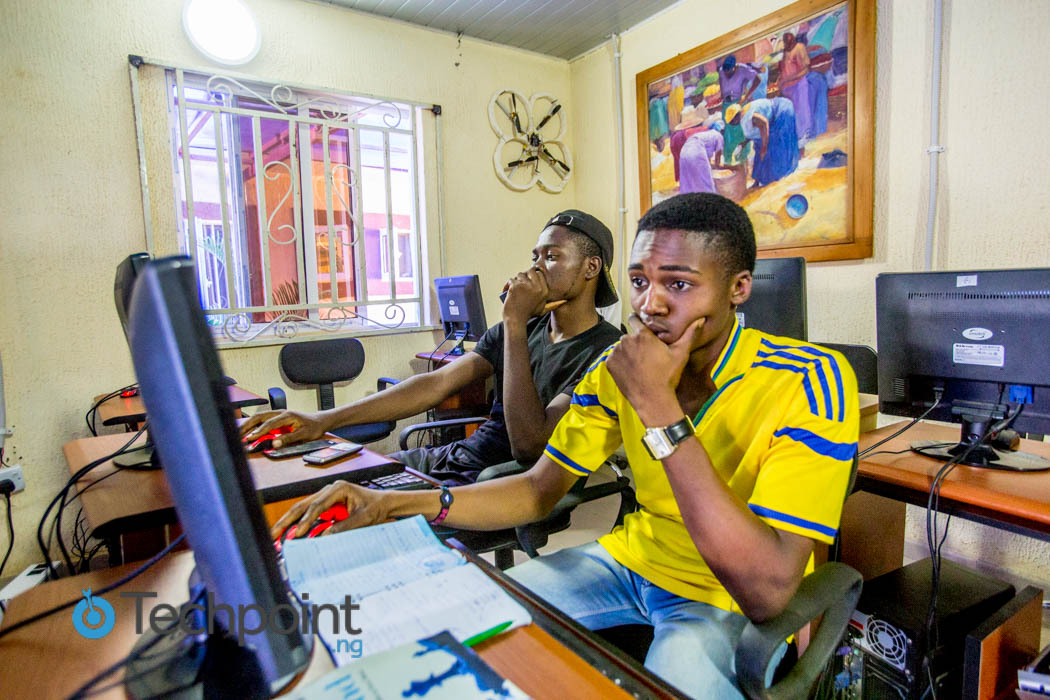
The incubator has space dedicated to individuals in its accelerator program to provide the required privacy needed as they work on hardware prototypes. The incubates are encouraged to build products that will address local challenges.
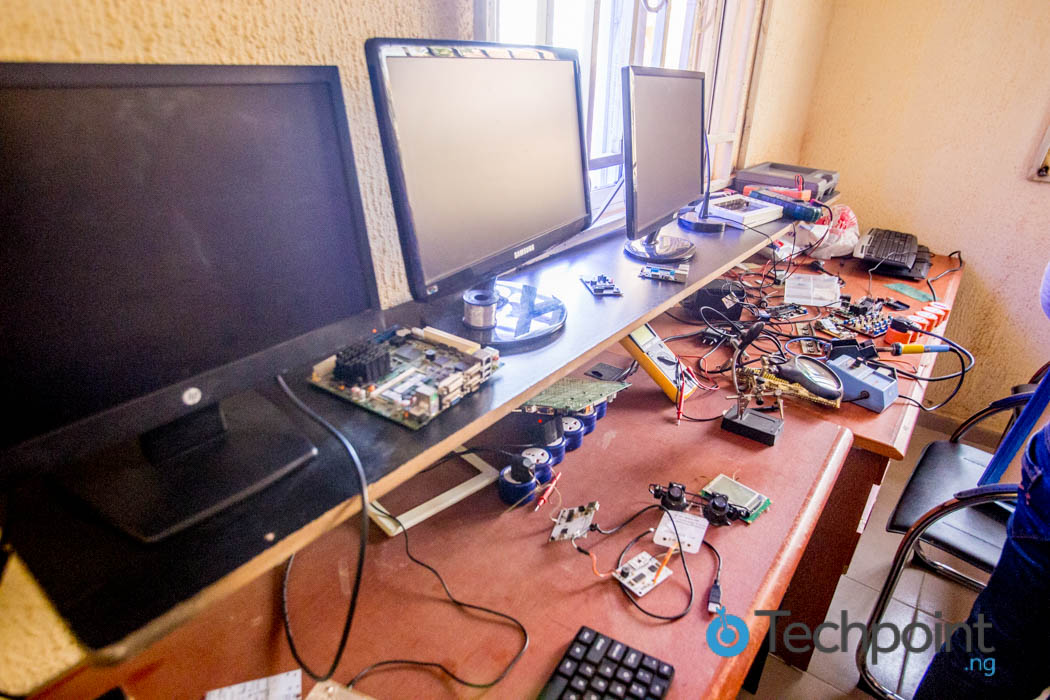
We met Ewa Francis who graduated from Akanu Ibiam Federal Polytechnic and got into TD4PAI’s accelerators program about four months ago.
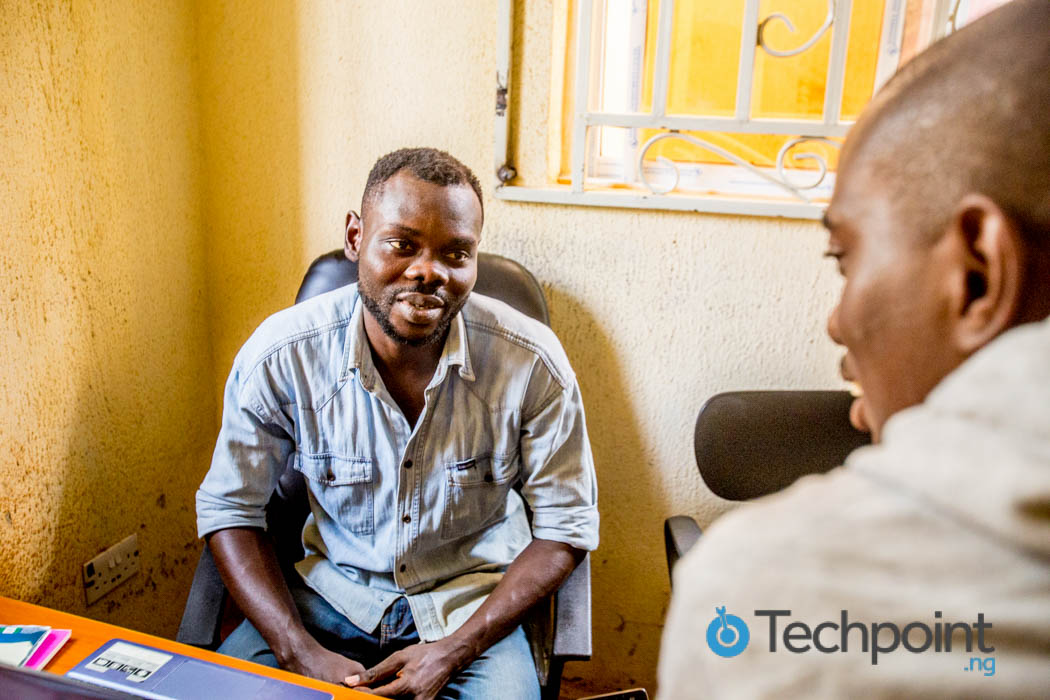
Although he is not new to coding, TD4PAI exposed Francis to embedded systems. Now Francis is working on the prototype of a robotic arm using a Servo motor and an Andriuno.
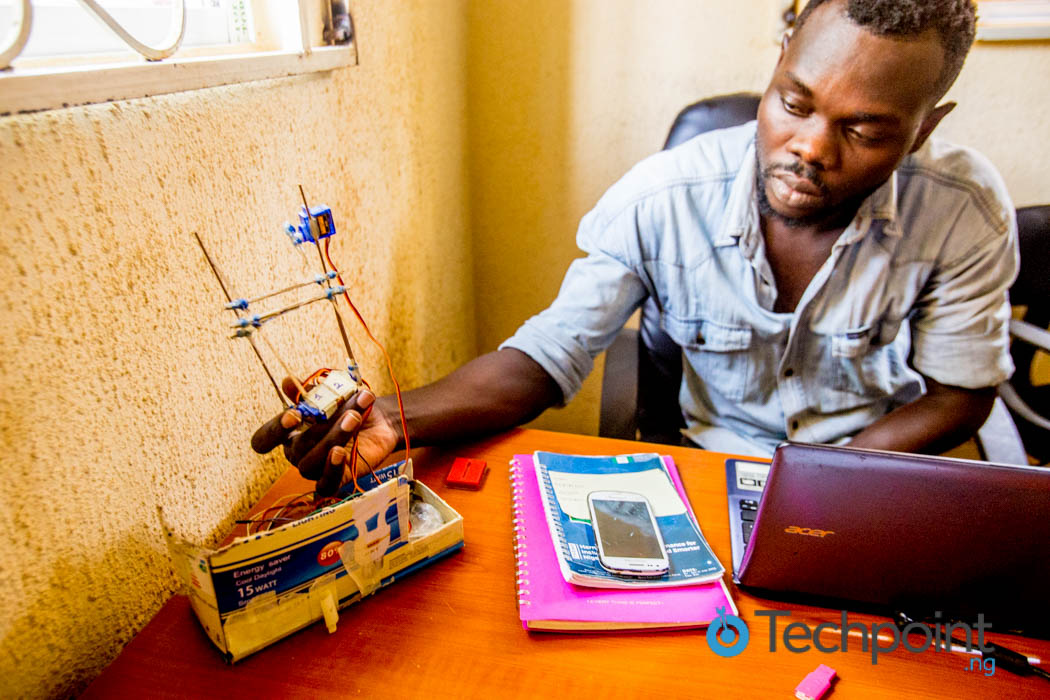
Before we leave the incubator, let’s check out some innovations at TD4PAI:
Reservoir Monitoring System (Ruwatronik).
The Ruwatronik was created to automate the flow of volumetric content in tanks and silos. Due to the wear and tear problem that is common to float switches, Ruwatronik was created as a more efficient replacement.
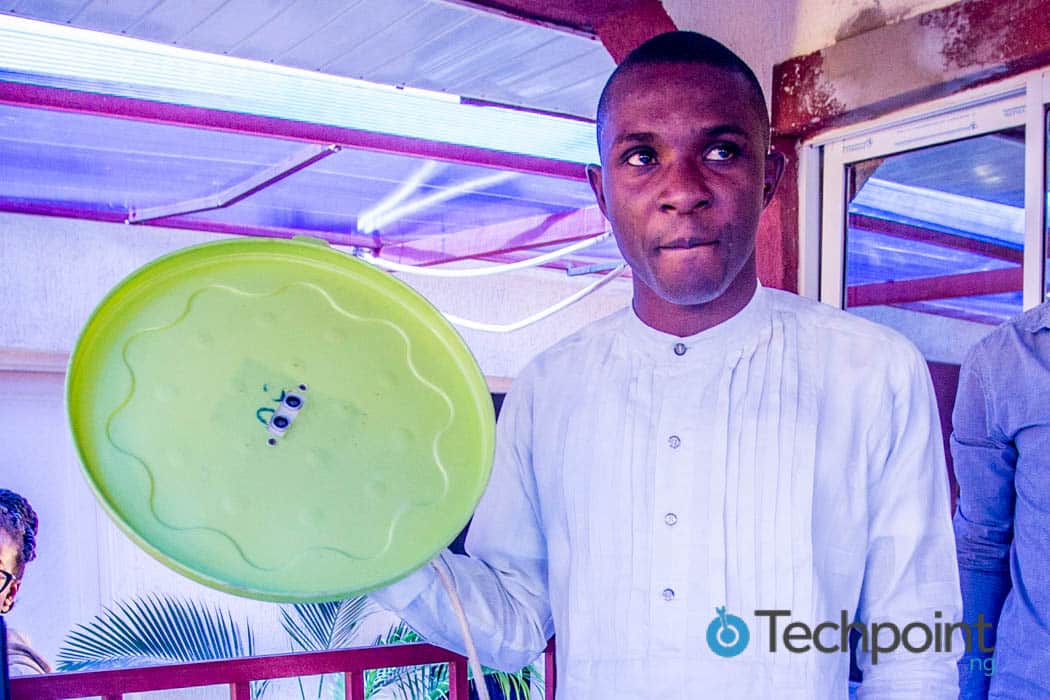
It is calibrated with lower threshold to send a signal to the pump to turn it on, and the upper threshold sends a signal to the pump to turn it off.

Radio-frequency Identification (RFID) Naija Card Reader.
The Radio-frequency Identification (RFID) Biometric Card Reader can be used during elections to verify the authenticity of a Polyvinyl Chloride (PVC) card holder. This product was developed at the hub to show how technology can help make elections transparent within the country.
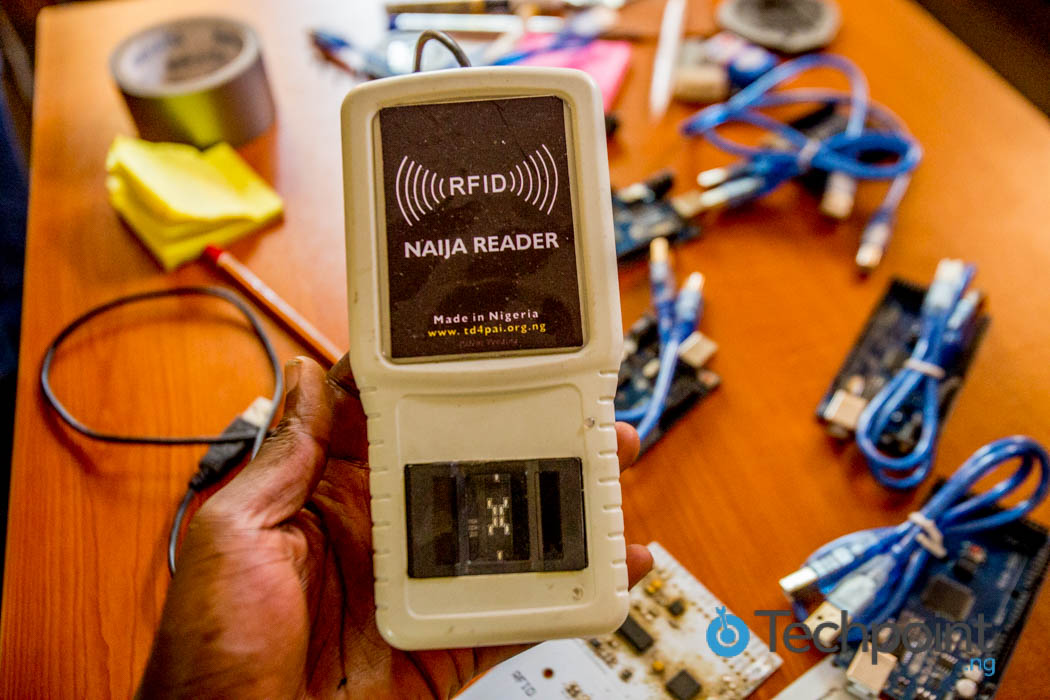
Locally built unmanned aerial vehicles (drone).
Obinna an intern within the hub was able to build a drone with a styrofoam body during the 2016 eNigeria program, an annual Information Technology summit organised by National Information Technology Development Agency (NITDA).

TD4PAI also provides hostels for it’s incubates.
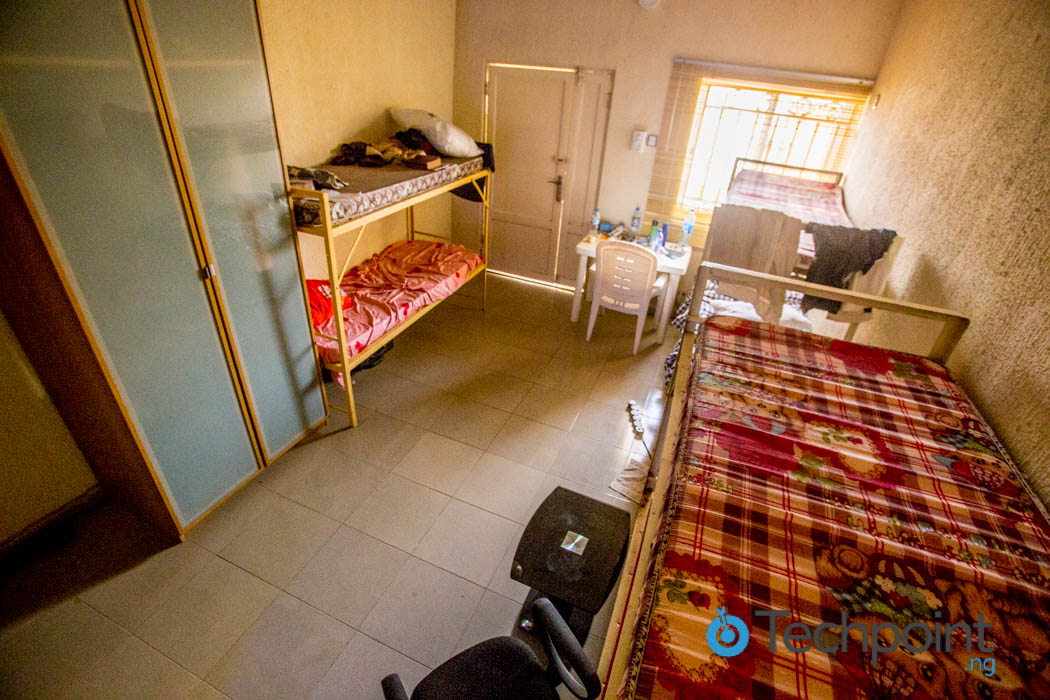
The rooms have extensions that has a work desk and chair for incubates that want to work at night.
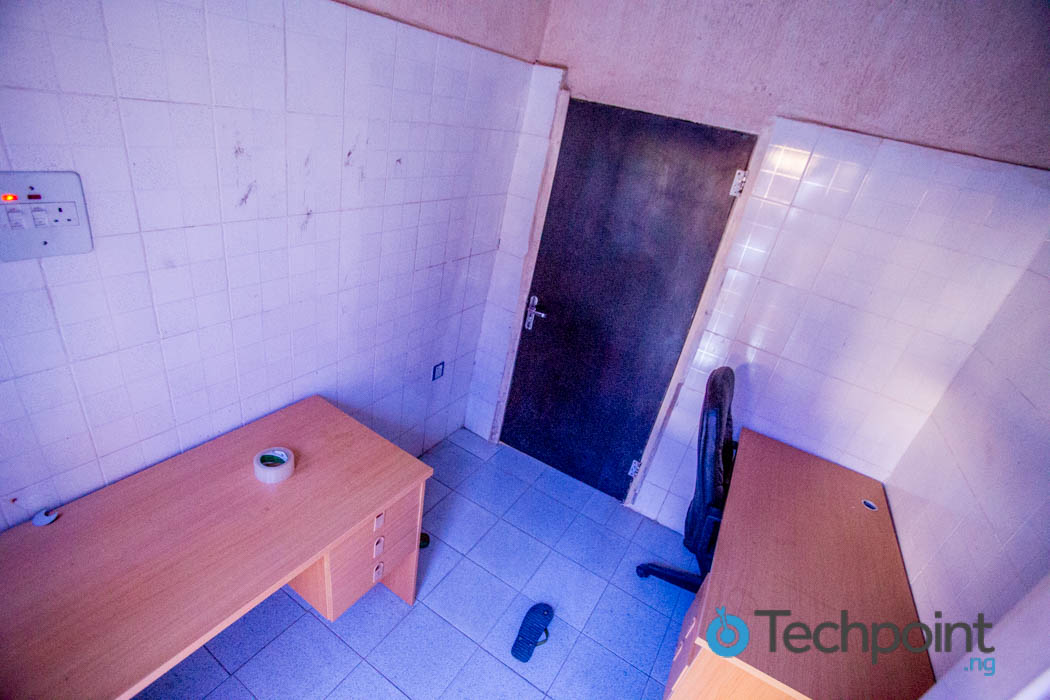
To end our tour of the hub we visited the control room that houses the inverters that power the hub.
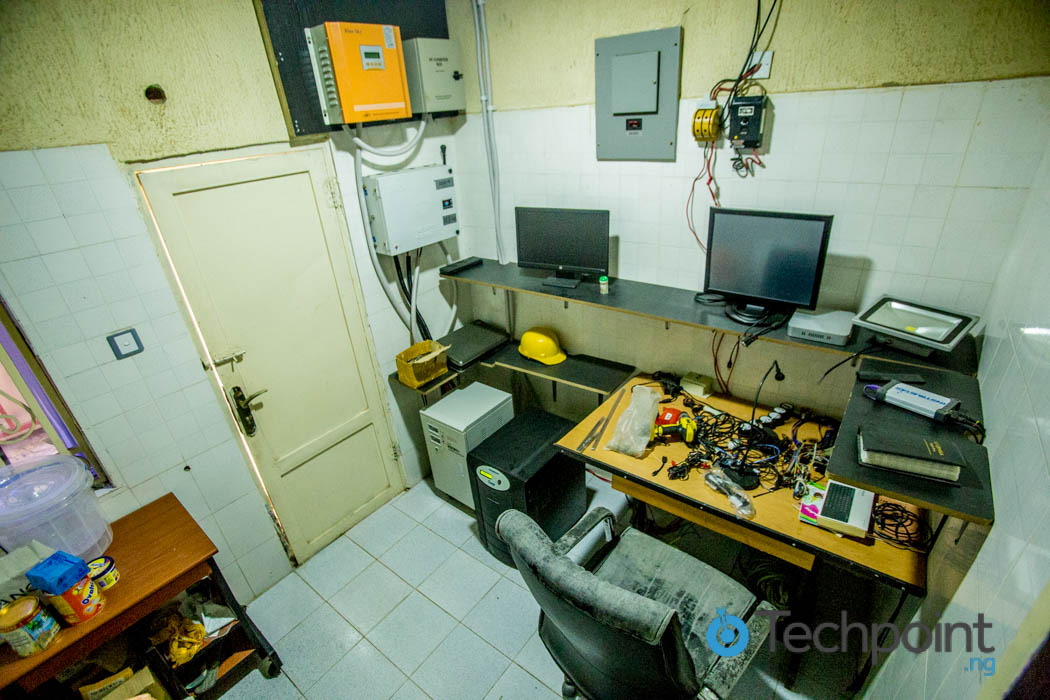
On full charge, the inverters can last up to 8hrs.
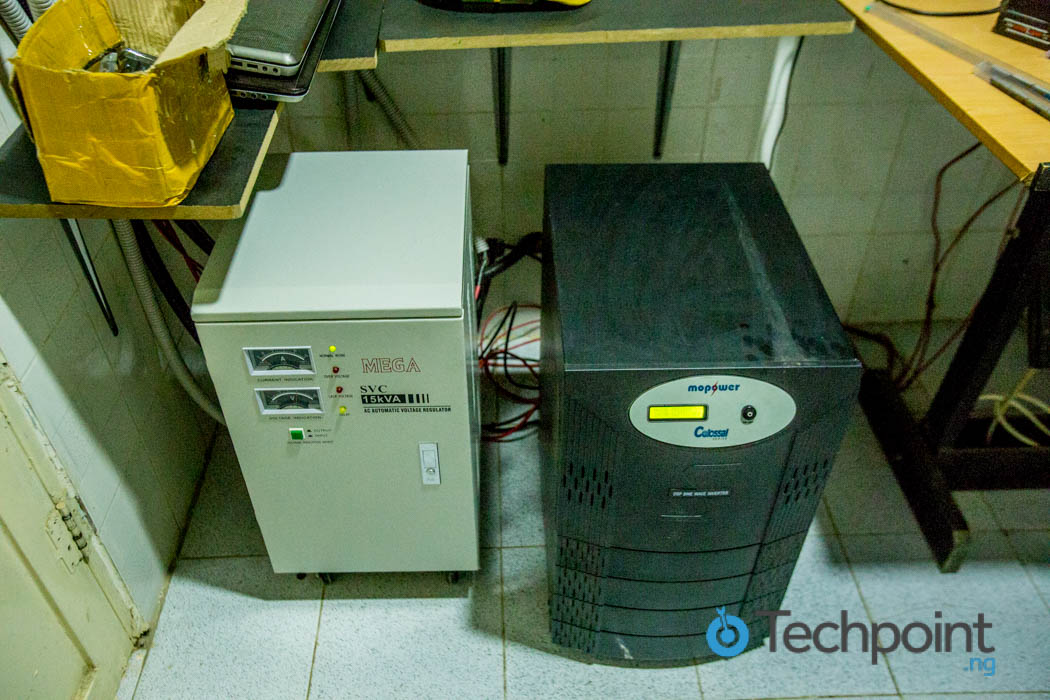
Challenges.
An obvious challenge faced at TD4PAI is the untarred road which hinders easy access to the hub. From drop off point, we walked for 20 minutes through the rocky road channel to reach the hub.
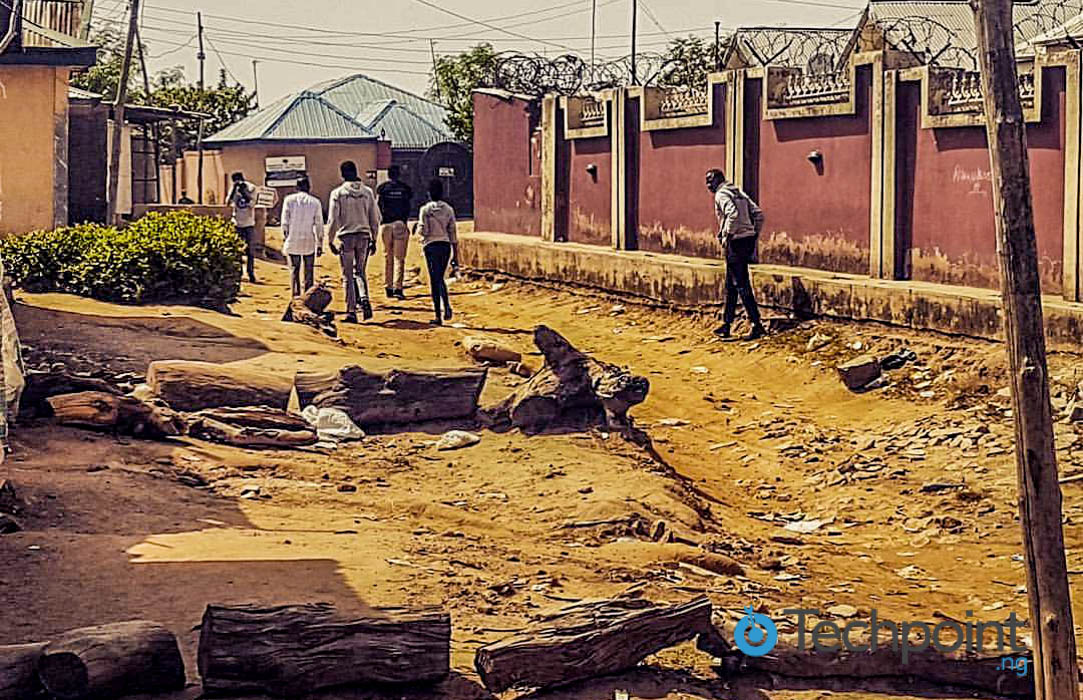
Furthermore, the absence of ladies in the incubator is an ongoing concern. This therefore begs the question as to whether incubators across the country have been successful at dispelling the myth that tech isn’t for women.

We observed that ladies that have been part of our incubation program always tend to prefer learning how to code and not delve into hardware oriented tasks. – Iddo Glory, Hub Manager at TD4PAI
In conclusion, consistent sponsorship is a major challenge faced by the TD4PAI team. At the moment, Dr. Agu and NITDA are the major sponsors. There’s need for more sponsors to help ease the burden of running free trainings and the incubation program at the hub.


